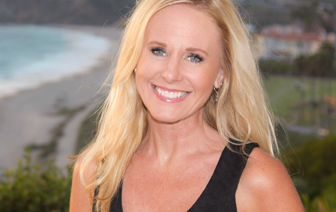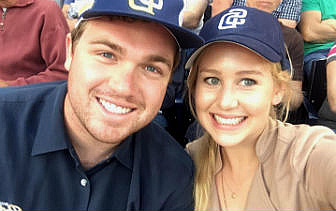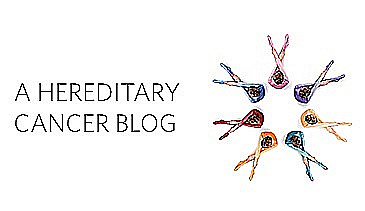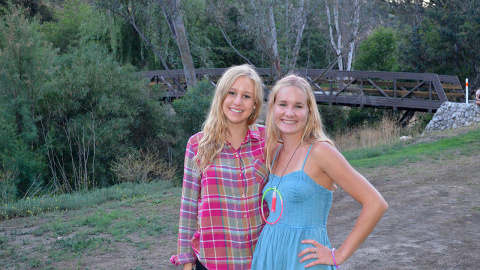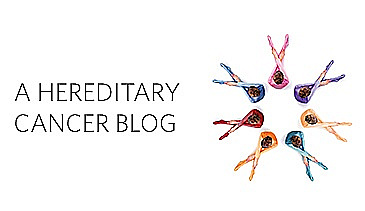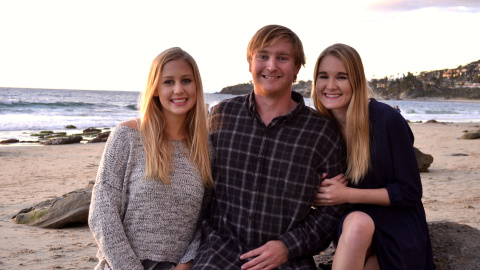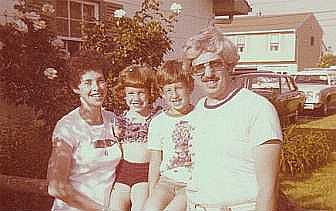- By Theresa Smith
- Posted April 28, 2016
What About The Men? Time For Us To " Man Up"
For a woman being diagnosed with a BRCA2 gene mutation, there is a ton of information specific to cancers for women, but what if you are a man? The amount regarding male breast cancer, hereditary prostate cancer, and hereditary pancreatic cancer is limited. In addition, public awareness about these conditions is limited. Considering that…
- By Bill Rotter
- Posted April 26, 2016
Sharing My Diagnosis and Genetic Testing With Family and Friends
While it’s difficult for anyone to come to grips with a cancer diagnosis, it becomes more challenging having to share the news with family and friends. Especially when you are a man telling them you have breast cancer. People may look at you with a deer in the headlights stare….men get breast cancer? This was the reaction from many, as nearly…
- By Theresa Smith
- Posted April 22, 2016
Previvor’s Perspective – A Daughter’s Feelings
It was a year after I had tested positive for the BRCA2 gene mutation before I found out about the status of my three children. My oldest, my son, and my youngest daughter were both negative (huge relief). My middle daughter, Jenna, unfortunately tested positive for the same mutation I have. She is 23 years old now and is graduating from…
- By Michelle Jackson
- Posted April 14, 2016
Male breast cancer is rare, but it’s not that rarely inherited
When I was a clinical genetic counselor, I met with many men who had been diagnosed with breast cancer for genetic counseling and genetic testing. Counseling male breast cancer patients about genetics was often very different for me than counseling female breast cancer patients. I think the main reason for that is men and women are different and…
- By Bill Rotter
- Posted April 12, 2016
A Male Breast Cancer Perspective
Cancer is a difficult and tricky disease that tries to destroy us but now we are better prepared to fight back due to a stronger understanding of the disease. Cancer does not discriminate. As a male, the day I learned I had breast cancer was one of total disbelief and overwhelming shock. A diagnosis I was not prepared for. Sure, I knew men…
- By Theresa Smith
- Posted April 7, 2016
What Can I Do Until My Children Can Be Tested?
Dealing with your own BRCA1 or BRCA2 genetic testing results is one thing, but worrying about testing for your children is another. Especially when they are under 18 years old. There is a very real possibility that people will have to wait for years for their kids to find out if they are positive or negative for the mutation.…
- By Jessica Profato, MS, CGC
- Posted April 5, 2016
When should my children be tested for hereditary cancer?
When I was a clinical genetic counselor, each patient that I met with for genetic counseling had some different questions about how their positive genetic test results could impact their care or that of their family members. A common theme among patients who had children was that they wanted to know if, when, and how their children should be tested…
- By Theresa Smith
- Posted March 22, 2016
Hang on a Minute, Let’s Think This Through
After testing positive for a mutation in my BRCA2 gene, I was on high alert. I rushed to all my doctor’s appointments and gathered a lot of information regarding preventive surgery options. I also did a lot of research on the statistics and newer medical studies regarding BRCA1 and BRCA2. I evaluated everything based…
- By Eve Mart
- Posted March 1, 2016
Being a Survivor Doesn’t Mean You Can Ignore Me
My mom was first diagnosed with breast cancer in 1989, when breast cancer was still whispered about and long before Angelina Jolie put genetic testing on the Hollywood map. My mom complied with the treatment recommended for her at the time, which included a lumpectomy, chemotherapy and radiation. Eighteen years later, in 2007, I was 34 years old…
- By Theresa Smith
- Posted February 23, 2016
What about my “foobies” surgery?
I did finally come to terms with my decision to have a preventive bilateral mastectomy to lower my risk of breast cancer from my BRCA2 gene mutation. I was scheduled with my surgeon, but I was put on a rolling schedule, which meant my date was not set in stone. I asked at what point I got to keep my surgery date, instead of my date being…
